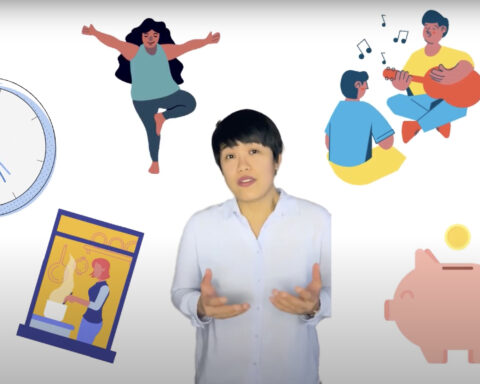In September 2010, I received a phone call from Afghanistan. My relative, Meena, was on the other end. The Grade 9 schoolgirl was upset because her father had pulled her out of school when she reached puberty.
Meena was confined at home for over two months, unable to get permission to return to school. Her call from a village in Baghlan province, 230 km northeast of Kabul, was a desperate cry for help from my father, an elder of our extended family. Luckily, he influenced Meena’s father to let her resume school.
It is difficult to increase the literacy rate in Afghanistan with so many girls not completing school.
Meena’s plight informed my future academic research: The Influence of Traditions and Cultural Norms on Girls’ School Withdrawal in Afghanistan. It turns out Meena was incredibly lucky – a significant number of girls never make it back to school.
Fewer Girls in Secondary School
It is difficult to increase the literacy rate in Afghanistan with so many girls not completing school. These girls simply add to the large population of illiterate women in the world.
A World Bank report says that since the fall of the Taliban in 2001, education for Afghan girls has improved significantly with school enrolment over 3.75 million in 2015, compared to 191,000 in 2002.
While this increase seems promising, High Stakes – a joint briefing paper about the many hurdles girls in Afghanistan face in getting an education – reports a dramatic decrease in enrolment at the secondary school level and higher.
My research has shown that in over a decade since the fall of the Taliban, not much effort has been made to retain female students in schools, especially in the rural areas where 75 to 80 per cent of the country’s population lives.
The United States Special Inspector General for Afghanistan Reconstruction (SIGAR) has also expressed concern over the Afghan Ministry of Education’s vague record of the number of students currently present in schools.
The ministry’s records show that in 2014 out of 8.35 million students (both genders) enrolled, 6.6 million were present and 1.55 million were permanently absent.
According to the Afghan education system, an absent student’s name remains on the roll for three years; then he or she is considered a permanent absentee. The records do not indicate the number of students who dropped out or were withdrawn from school during this time.
My research has shown that in over a decade since the fall of the Taliban, not much effort has been made to retain female students in schools, especially in the rural areas where 75 to 80 per cent of the country’s population lives.
Foreign countries like Canada have provided assistance, though. Canada has spent over $2 billion investing in numerous educational projects for Afghanistan between 2002 and 2013 and renewed its commitment to Afghanistan from 2014 to 2017 focusing on education, mothers’ health, human rights, women’s rights and building the capacity of local organizations.
Positive Impact of Education Overlooked
Many cultural and non-cultural factors prevent Afghan girls from staying in school.
Parents’ or guardians’ lack of awareness about the benefits of schooling for women, combined with fear of elopement or kidnapping, and in many cases wrong interpretation of Islamic teachings, all prevent girls in rural areas from getting a high school education, if not more.
Recently, Mohammad Younus Yousufi, Provincial Head of Kandahar Province, urged parents to allow their daughters to complete high school. “Every year we witness older girls leaving school. We know it is because families withdraw them,” he has been quoted as saying.
“People say a girl should learn how to pray and observe fast, and that is enough.” – Research participant
Through my research I found it is a common belief among rural people that when a girl reaches puberty education has no purpose in her life; she should prepare for marriage and learn how to do housework and be a caregiver. One of my research participants spoke of the community attitude towards girls’ education by saying: “People say a girl should learn how to pray and observe fast, and that is enough.”
Often overlooked, especially among men, is the positive impact of girls’ education on their personal lives and their future married life, even if it doesn’t help them to get employed. After all, securing employment is another obstacle for girls, and there are minimum “female jobs” in the rural areas.
Some Families ‘Worse Than Taliban’
Rana was studying in Grade 11 at age 18 when her brother pulled her out of school in 2012. Her mother explained the motive: “My son told his sisters, ‘do the housework. That will benefit you in your future [after marriage]. School has no benefit for you.’”
Similarly, 20-year-old Farha was in Grade 8 when her only brother stopped her from attending school. Likewise, her 18-year-old sister Gulnar was prevented from going to school in Grade 9. (The reason for the discrepancy between their age and the grade they were attending is because girls were banned from school under the Taliban from 1996 to 2001, and the earlier turmoil from 1992 to 1996 that kept many girls out of school.)
“If my son had a mind of his own, he would have said, ‘whatever people say I won’t buy. Until I [have] seen my sisters being corrupted, talking and flirting with boys, I won’t believe it.’” – Mother of girls withdrawn from school
Farha and Gulnar’s mother said the rumours spread by villagers about schoolgirls are a major problem. “If my son had a mind of his own, he would have said, ‘whatever people say I won’t buy. Until I [have] seen my sisters being corrupted, talking and flirting with boys, I won’t believe it.’”
When asked if there are any threats from the Taliban, the mother responded: “There isn’t any threat from Taliban, but some families are worse than Taliban. Uncles and relatives are worse than Taliban.”
Farha and Gulnar represent hundreds of thousands of girls in Afghanistan whose rights to education are being denied.
According to the High Stakes report, a schoolteacher in Parwan province suggests that if schools maintain regular contact with parents through meetings, this will help them see the benefit of education and cooperate in sending their daughters to school despite the challenges.
Cases like Meena need not be rare. Meena graduated from high school in 2013 and was one of the few girls who went on to study further in the Khinjan district of Baghlan province. This year she will complete a teacher-training program in the district and hopefully get a job in her field.




